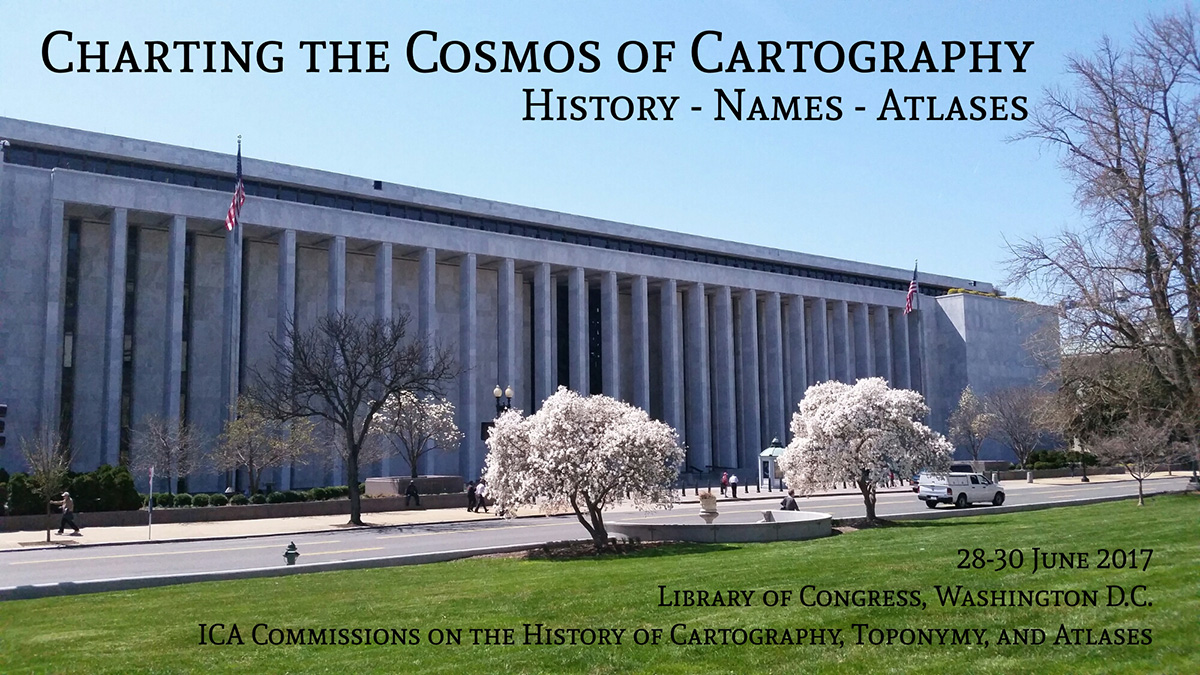http://icaci.org/invitation-to-the-international-symposion-on-place-names-in-windhoek-namibia/

2017 International Symposium on Place Names
Critical toponymy: Place names in political and commercial landscapes
Jointly organised by the Joint IGU/ICA Commission on Toponymy, the UFS, and
UNAM University of Namibia
Windhoek, Namibia, 18-20 September 2017
UNAM University of Namibia
Windhoek, Namibia, 18-20 September 2017

Invitation to the International Symposion on Place Names in Windhoek, Namibia
The fourth International Symposium on Place Names (ISPN) will be held 18–20 September 2017 in Windhoek, on the campus of the University of Namibia. The theme of the symposium is Critical toponymy: Place names in political and commercial landscapes. It is jointly organised by the Joint IGU/ICA Commission on Toponymy, the UFS, and UNAM.
The Call for Papers can be found on the conference website. Deadline for abstract submissions is 17 April 2017.
History of the International Symposion on Place Names
Peter E. Raper, one of South Africa’s foremost experts on the Bushman (San) substructures of place names, was appointed as a Professor Extraordinaire in Linguistics in 2011. Subsequently, his host department, then the Department of Language Management and Language Practice at the University of the Free State, together with the Unit for Language Facilitation and Empowerment (ULFE), initiated the Place Name Symposium. His appointment as well as the hosting of the Symposium is now situated within the ULFE. The aim of this event is to provide a platform for the sharing of expertise and knowledge about place names for local as well as international researchers and government officials.
The Symposium became an international occurrence when the Joint IGU/ICA Commission on Toponymy came on board in 2015. Hosted every second year, this symposium is the only one in southern Africa that focuses on toponomy. The 2011 Symposium, entitled “Planning name changes – the quest for authenticity”, was hosted in Bloemfontein, as was the one in 2013 with the theme, “Place names in a multilingual society”. The Symposium in 2015, which focused on “Place names, diversity and heritage”, was held in Clarens. While the first three symposia were hosted in South Africa, the aim is to rotate hosting between southern African countries. As such, the 2017 Symposium will be held in Windhoek, in collaboration with the University of Namibia.
In line with developments in the field of toponomy, the theme for 2017 is “Critical toponomy: Place names in political and commercial landscapes”. The vision of the International Symposium on Place Names is to continue and promote the sharing of international expertise and collaboration on all aspects of place names.
For more information, please visit the conference website: ufs.ac.za/conferences/conference/2017-international-symposium-on-place-names













